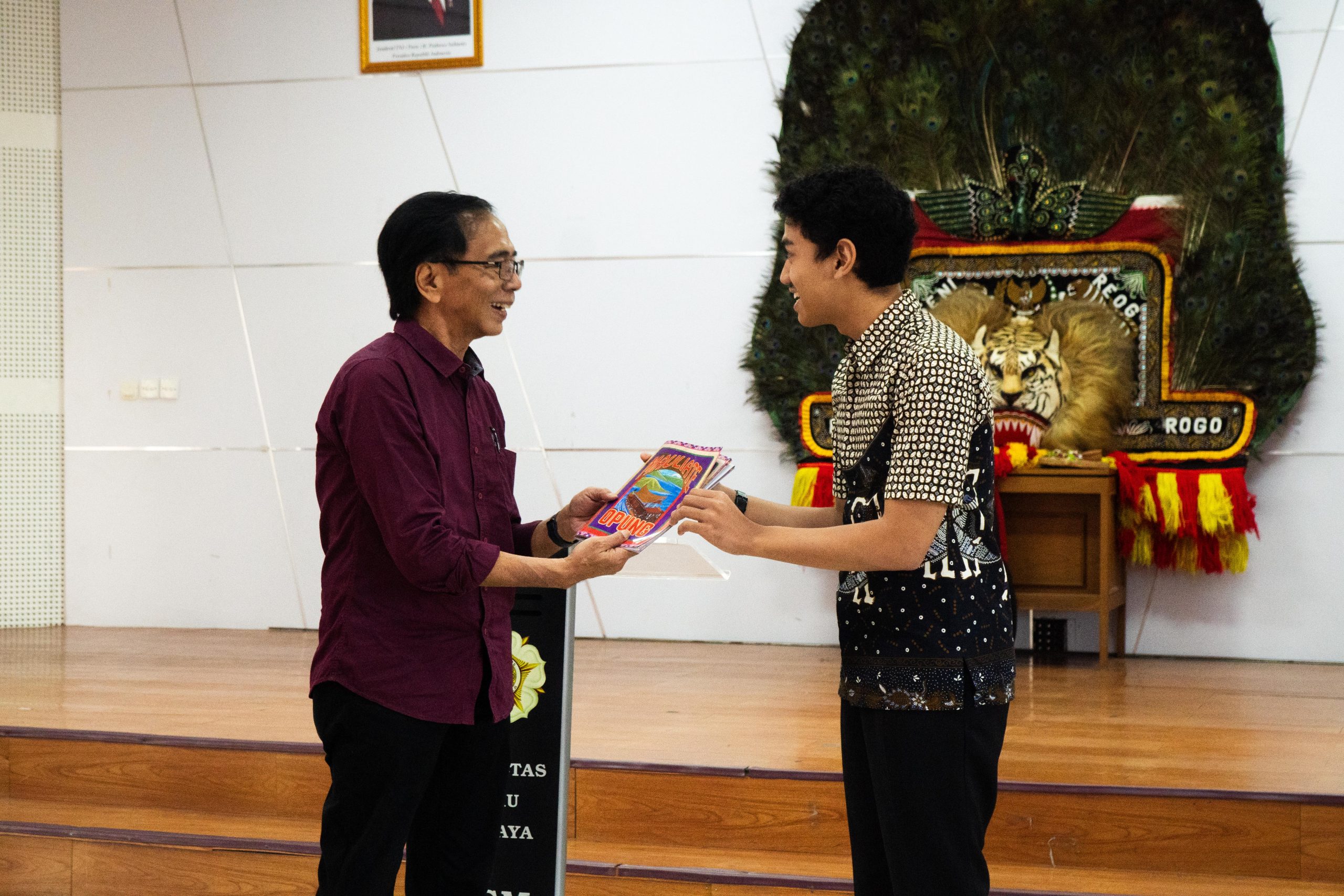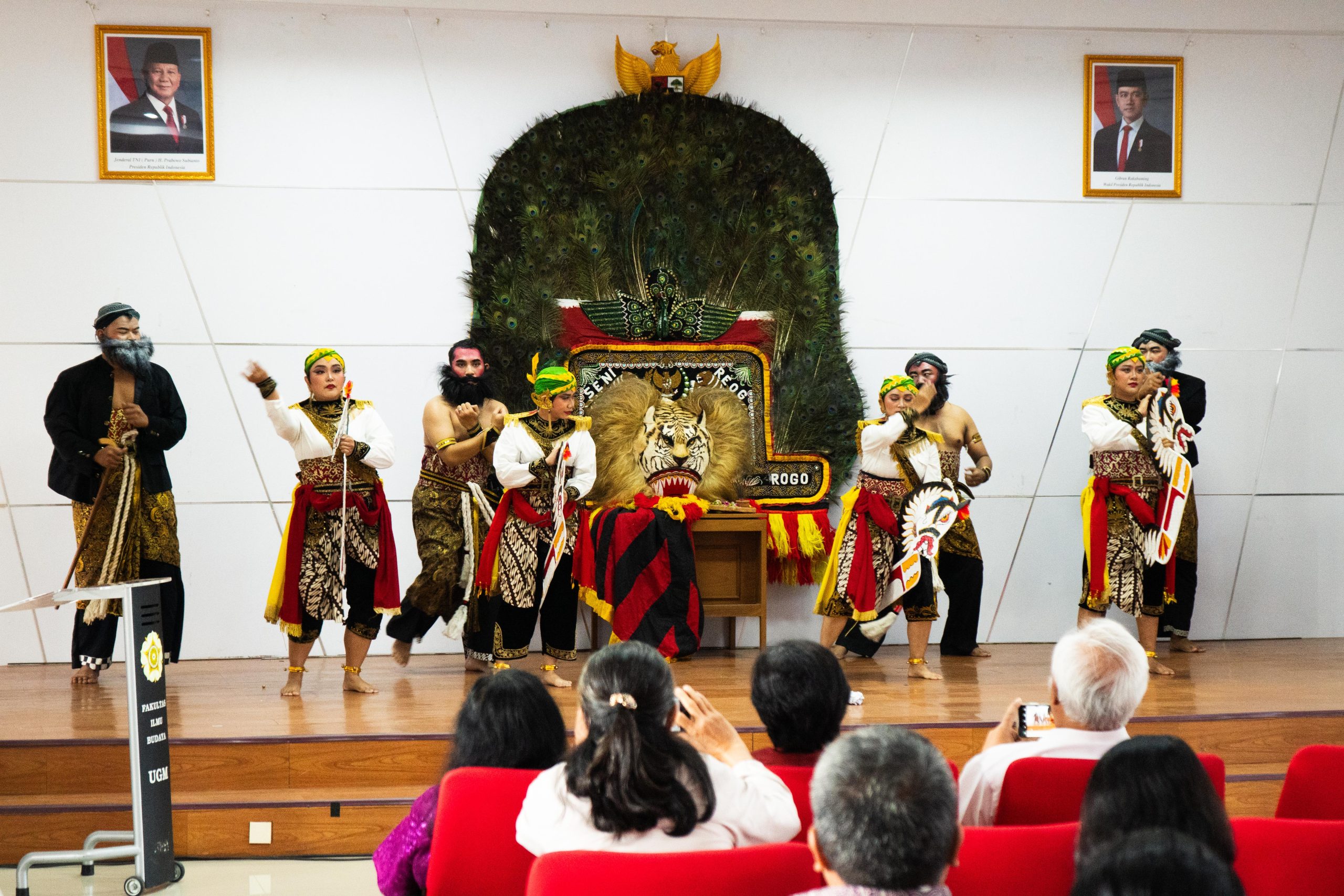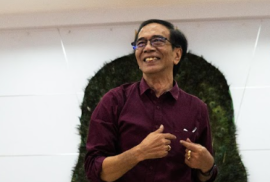Yogyakarta, June 19, 2025 – The Department of Cultural Anthropology at Universitas Gadjah Mada held a heartfelt retirement ceremony for Dr. G.R. Lono Lastoro Simatupang, M.A., a distinguished academic whose career has profoundly shaped the landscape of education and cultural studies in Indonesia. The event served as a moment of appreciation and reflection on a journey marked by dedication, critical thinking, and cultural advocacy.
One of the highlights of the event was the presentation of a commemorative book consisting of thirty essays contributed by Dr. Lono’s colleagues and students. These writings represent a tapestry of reflections, thoughts, and shared experiences, serving as both an intellectual tribute and an emotional homage to his enduring influence.

The ceremony also featured artistic performances from students and faculty members, adding a vibrant and celebratory tone to the evening. The first performance—a dangdut remix song performed by students—paid tribute to Dr. Lono’s pioneering work in elevating dangdut as a serious subject of academic inquiry. For him, dangdut was not merely entertainment but a habitus—a cultural form that embodies the joys and struggles of everyday life.
“Dangdut is all about broken huts, sharing one plate of food, poverty… but it’s danced to, not cried over,” he remarked during the talk show segment.
In the same session, Dr. Lono shared insights into his early days as a lecturer and his involvement in a national NGO in Semarang in 1986. There, he led a community empowerment program through urban microfinance, a grassroots initiative that enhanced the economic resilience of urban communities. His work directly aligned with Sustainable Development Goal (SDG) 11: Sustainable Cities and Communities.

The final and closing act of the event was a dramatic performance of Reog Ponorogo, collaboratively staged by students and lecturers. The performance revisited Dr. Lono’s in-depth research on this traditional art form within the framework of performance anthropology. This act was not just symbolic, but a living embodiment of the cultural practices he explored, taught, and preserved throughout his academic career.
Beyond the performances, Dr. Lono’s commitment to bringing popular culture—such as dangdut and reog—into academic spaces illustrates his advocacy for contextual and critical education. His approach embodies the spirit of SDG 4: Quality Education, promoting inclusive, relevant, and culturally responsive learning systems.
Alumni from the class of 1995 also attended the event, presenting a symbolic gift through their representative, Ani Himawati. This gesture reflected the deep emotional connection shared between Dr. Lono and generations of students he mentored and inspired.
Dr. Lono’s retirement does not mark the end of his contributions but rather a continuation of his intellectual legacy. His work lives on not only in academic texts but also in music, folklore, and the everyday stories he transformed into meaningful knowledge. His legacy will continue to inspire critical awareness and cultural sensitivity for years to come.
[Public Relation of FIB, Alma Syahwalani]


